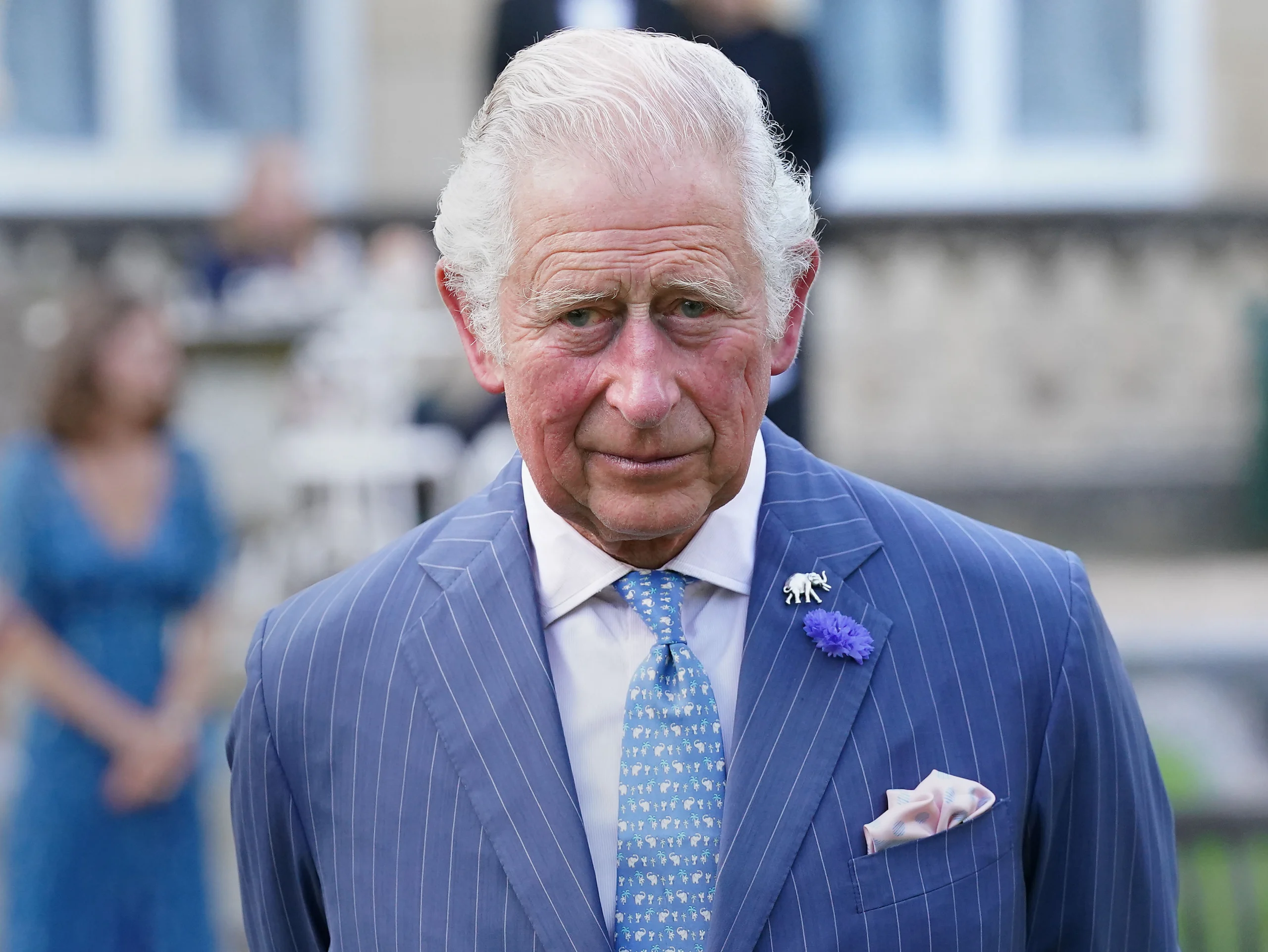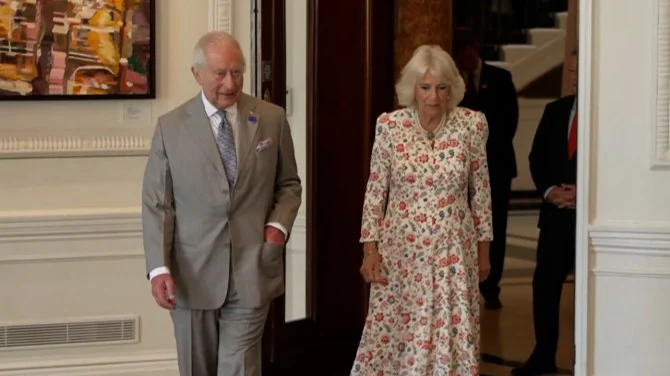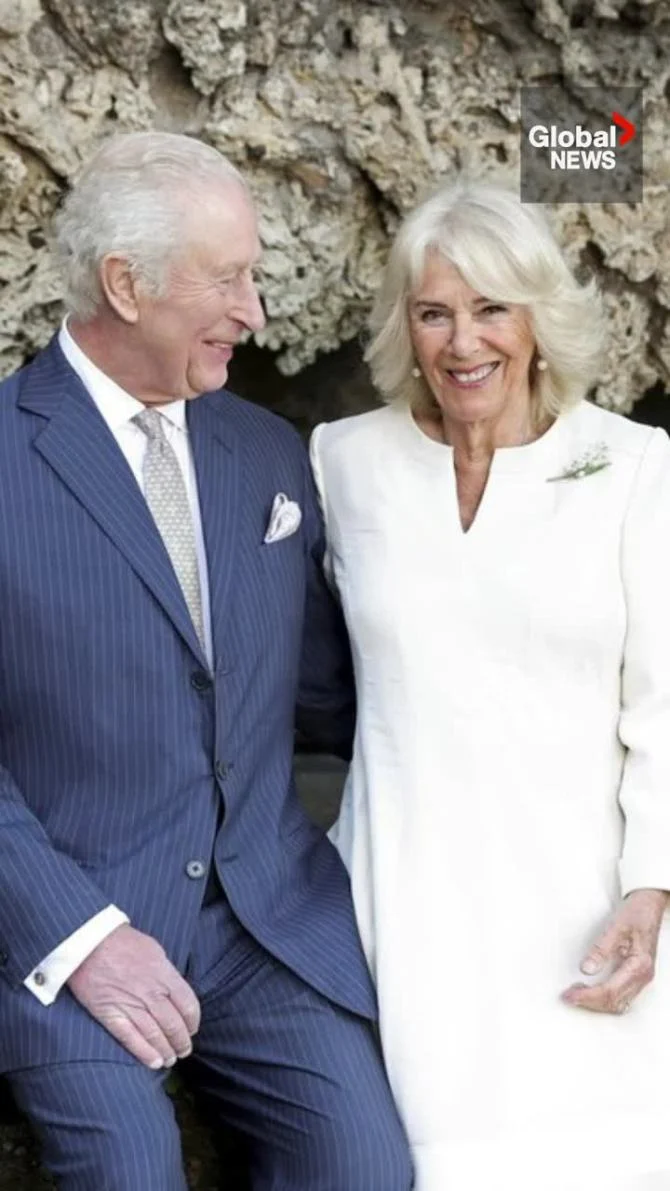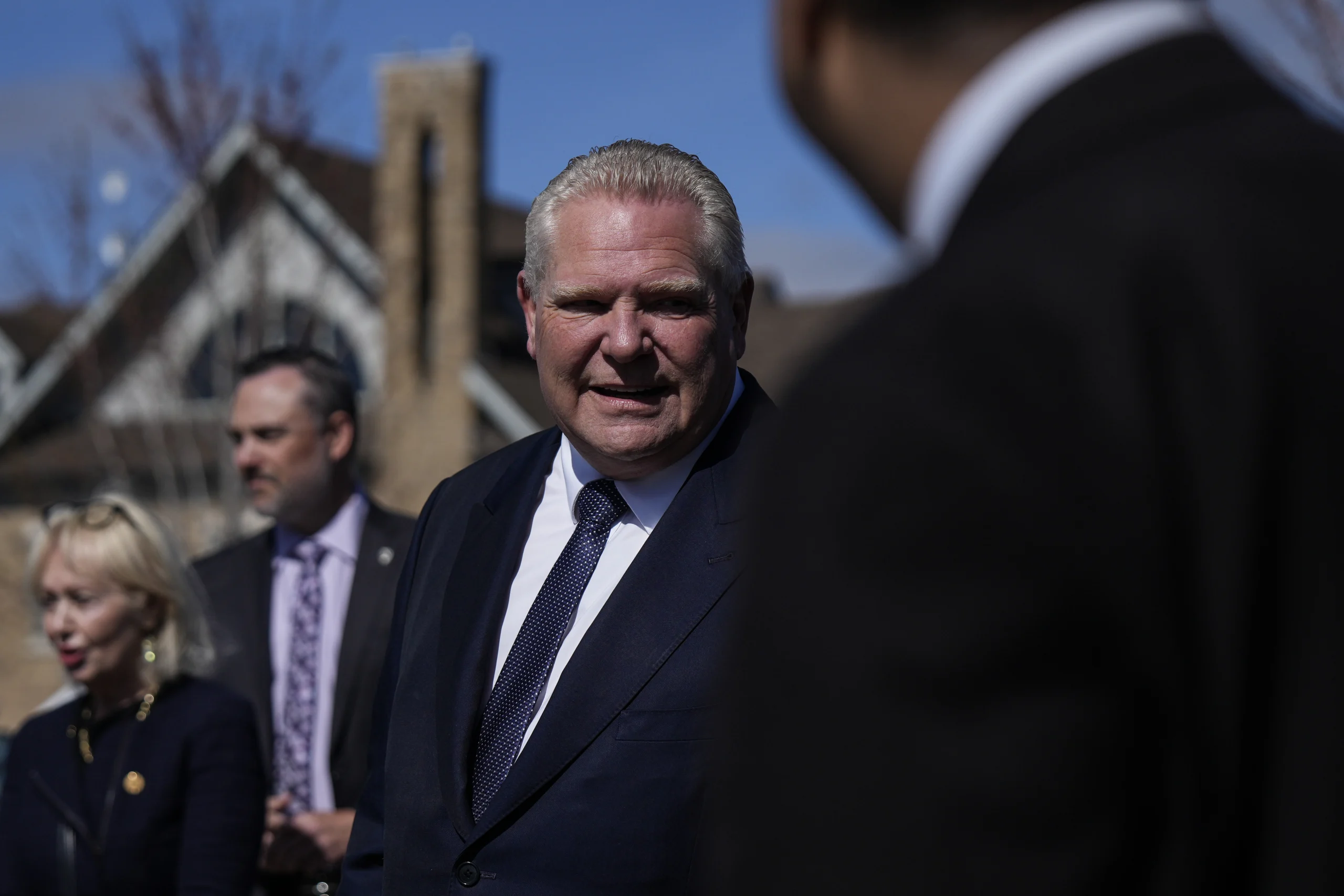When King Charles III prepares to inaugurate Parliament on Tuesday, a resurgence of royal interest is evident in Canada, as indicated by the latest Ipsos survey showing an increasing number of Canadians viewing the monarchy as a significant aspect of our national identity — a factor that differentiates us from Americans.
The Ipsos poll, unveiled exclusively for Global News on Tuesday by Ipsos Public Affairs, revealed that 66% of participants perceive Canada’s association with the monarchy as valuable because it helps establish our uniqueness from our southern neighbors.
This marks a rise from 54% in April 2023, signifying a notable increase in royal approval.
Moreover, 65% of respondents expressed that our connections to the monarchy are a crucial component of Canada’s heritage and contribute to shaping our identity, up from 58% in April 2023.
Two years after King Charles III’s coronation, Canadian sentiments toward the monarchy appear to be warming. The support for severing ties with the Crown has decreased by 12 points since 2023, while more individuals now hold a positive view of the King, which has increased by five points.
The King’s visit coincides with repeated threats to Canada’s sovereignty by U.S. President Donald Trump, who has suggested multiple times since his re-election that Canada should become the 51st state.
Parliament was adjourned in January during the winter recess, with the previous session ending due to the federal election call.
The commencement of a new Parliament will involve the election of the Speaker of the House of Commons and the Speech from the Throne. Traditionally delivered by the governor general — the monarch’s representative — this speech outlines the government’s agenda and priorities.
Although King Charles III serves as Canada’s head of state, and the country remains a constitutional monarchy within the Commonwealth, his role is primarily ceremonial.
Royals are experiencing a resurgence — in a way
In 2023, Ipsos polling revealed that 67% of Canadians believed the King and the Royal Family should not have a formal role in Canadian society, viewing them solely as “celebrities and nothing more.”
However, the recent Ipsos survey indicates a decrease to 56% in that number.
While 46% of Canadians advocate for ending formal ties with the British monarchy, this figure represents the lowest level of anti-monarchist sentiment since 2016, down from 58% two years ago.
Despite these positive developments, Quebec residents are still more inclined than others to support cutting those ties.
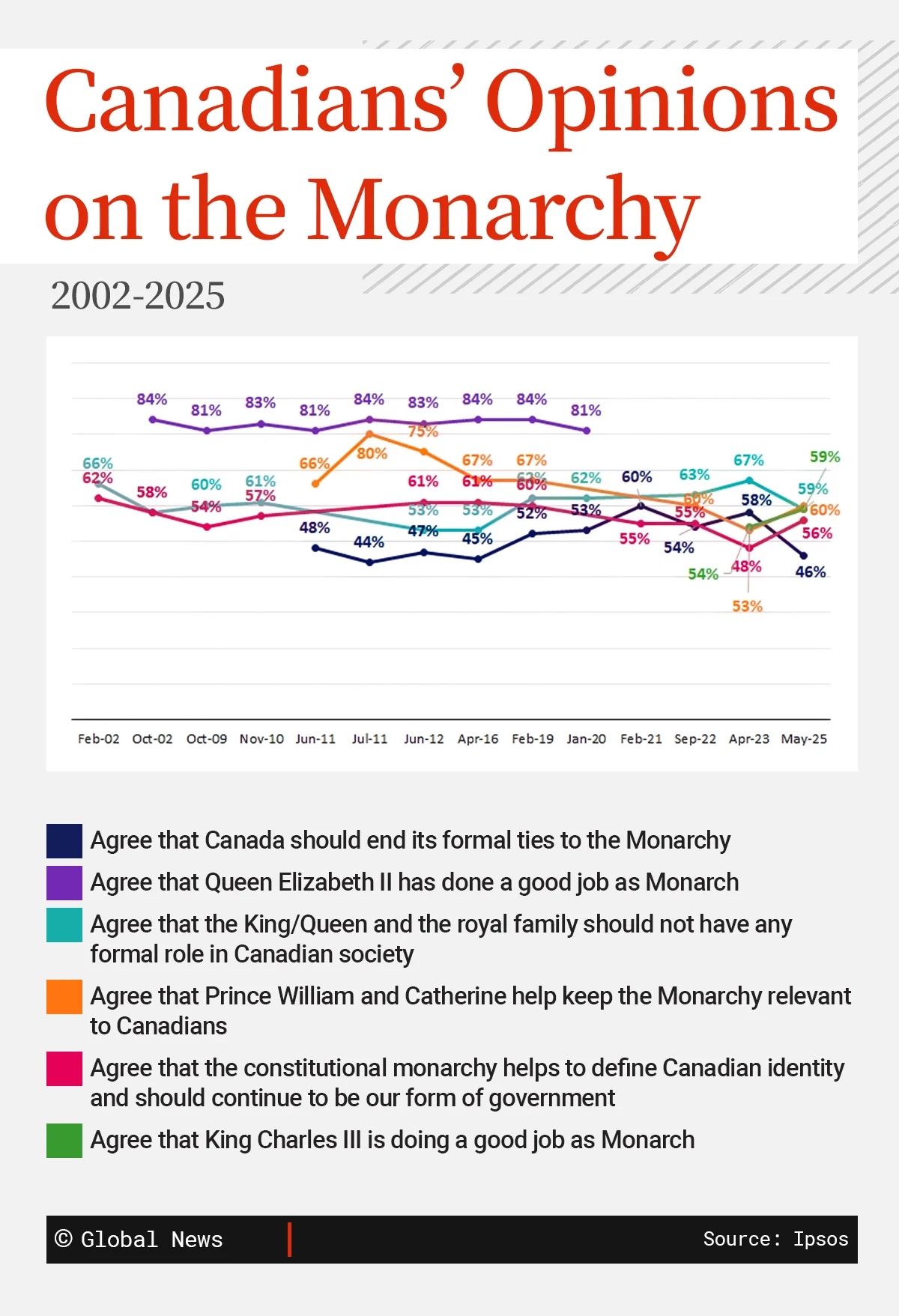
The acknowledgment of the Prince and Princess of Wales’ contributions to upholding the monarchy’s relevance has also increased to 60% (from 53% in 2023).
Since 2023, some royals have become more favorable among Canadians, with King Charles III’s popularity rising from 37% to 41%, and Prince William and Catherine gaining support at 56% (up from 52%) and 51% (up from 47%), respectively.
However, the approval ratings for other members of the Royal Family have remained stagnant or declined.
Camilla, Queen Consort, witnessed a slight drop in favorability, as did Prince Harry, while Meghan, Duchess of Sussex, experienced a two-point decline.
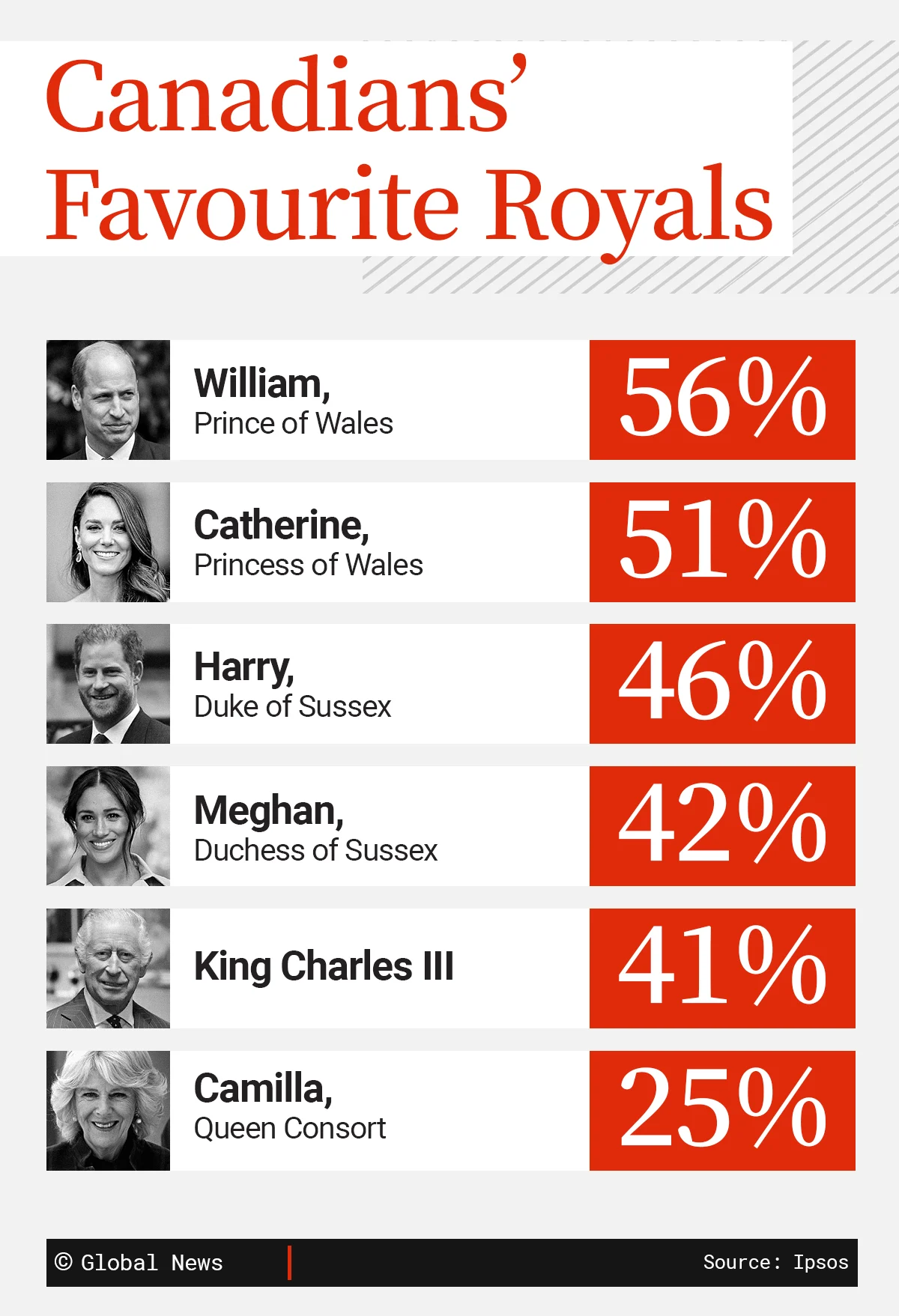
Older Canadians consistently exhibit stronger support for the Royal Family, underscoring a persistent generational gap.
Despite these advancements, the monarchy encounters challenges in garnering widespread backing, particularly among younger Canadians.
Primary Concerns for Canadians
As Parliament readies to resume following the April election — which saw the Liberals re-elected with a minority and Prime Minister Mark Carney leading the charge — a majority of Canadians appear content with a Liberal minority government.
However, this contentment is not uniform across the nation.
According to the poll, Albertans were the least content with the election outcome, with only 41% expressing any level of satisfaction, while 59% indicated dissatisfaction with a Liberal minority, including 37% who were “not at all satisfied.”
This discontent seems to reflect a broader sentiment of western alienation, mirrored by figures like Alberta Premier Danielle Smith.
In contrast, support for a Liberal minority government was much stronger in Atlantic Canada and Quebec, where 58% and 57% of respondents, respectively, expressed satisfaction with the result.
The poll also outlined the top priorities that Canadians want the Liberal government to address.
At the forefront is safeguarding Canada’s interests (27%), closely followed by concerns about affordability and the cost of living (26%).
Another 20% highlighted the economy in general as the primary focus, while 11% pointed to pipelines and other resource infrastructure. Merely 3% identified healthcare as a top priority.
These priorities varied by province, as indicated by the poll.
In Ontario, affordability

